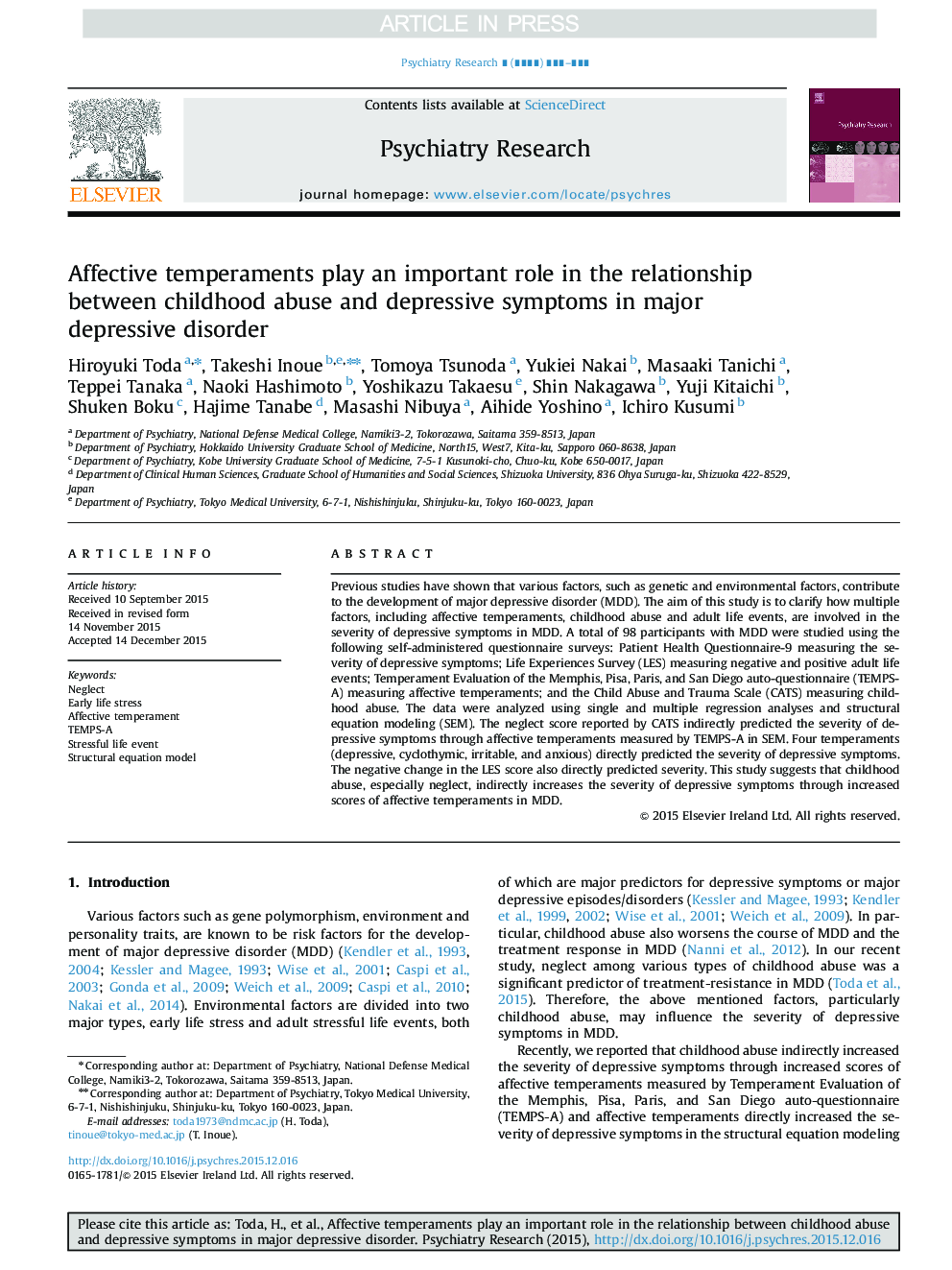| Article ID | Journal | Published Year | Pages | File Type |
|---|---|---|---|---|
| 6813658 | Psychiatry Research | 2016 | 6 Pages |
Abstract
Previous studies have shown that various factors, such as genetic and environmental factors, contribute to the development of major depressive disorder (MDD). The aim of this study is to clarify how multiple factors, including affective temperaments, childhood abuse and adult life events, are involved in the severity of depressive symptoms in MDD. A total of 98 participants with MDD were studied using the following self-administered questionnaire surveys: Patient Health Questionnaire-9 measuring the severity of depressive symptoms; Life Experiences Survey (LES) measuring negative and positive adult life events; Temperament Evaluation of the Memphis, Pisa, Paris, and San Diego auto-questionnaire (TEMPS-A) measuring affective temperaments; and the Child Abuse and Trauma Scale (CATS) measuring childhood abuse. The data were analyzed using single and multiple regression analyses and structural equation modeling (SEM). The neglect score reported by CATS indirectly predicted the severity of depressive symptoms through affective temperaments measured by TEMPS-A in SEM. Four temperaments (depressive, cyclothymic, irritable, and anxious) directly predicted the severity of depressive symptoms. The negative change in the LES score also directly predicted severity. This study suggests that childhood abuse, especially neglect, indirectly increases the severity of depressive symptoms through increased scores of affective temperaments in MDD.
Keywords
Related Topics
Life Sciences
Neuroscience
Biological Psychiatry
Authors
Hiroyuki Toda, Takeshi Inoue, Tomoya Tsunoda, Yukiei Nakai, Masaaki Tanichi, Teppei Tanaka, Naoki Hashimoto, Yoshikazu Takaesu, Shin Nakagawa, Yuji Kitaichi, Shuken Boku, Hajime Tanabe, Masashi Nibuya, Aihide Yoshino, Ichiro Kusumi,
